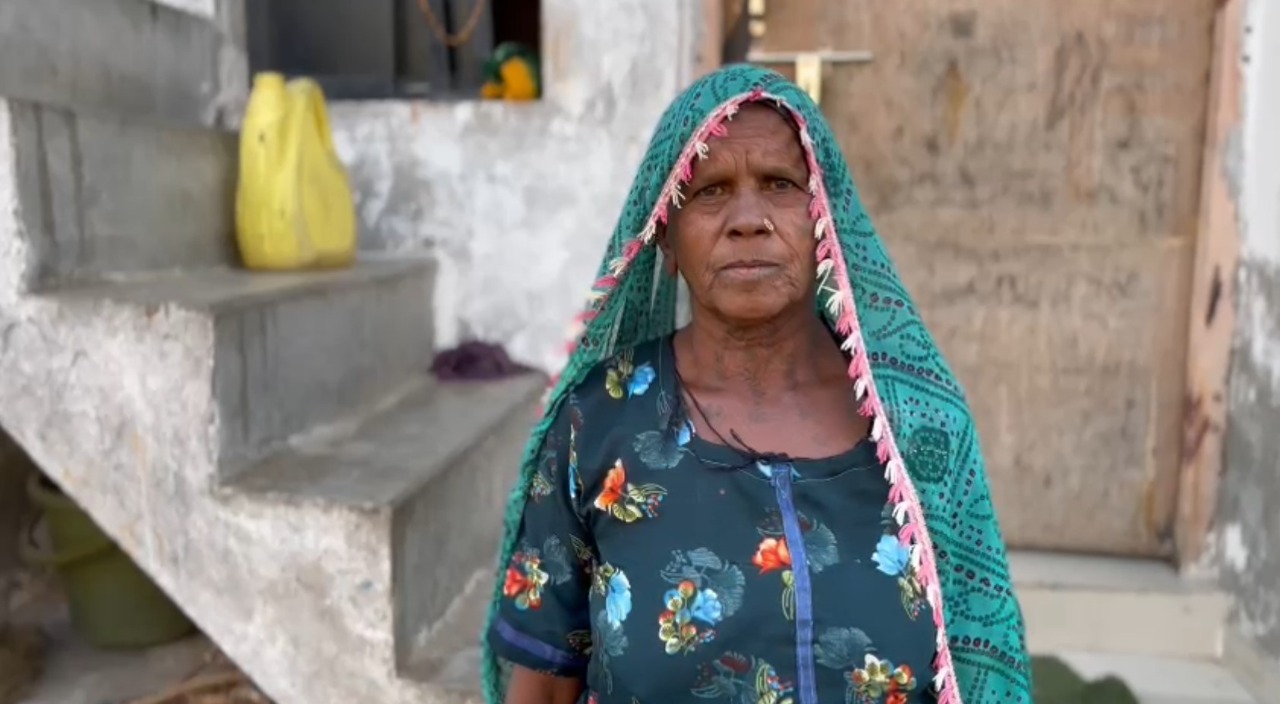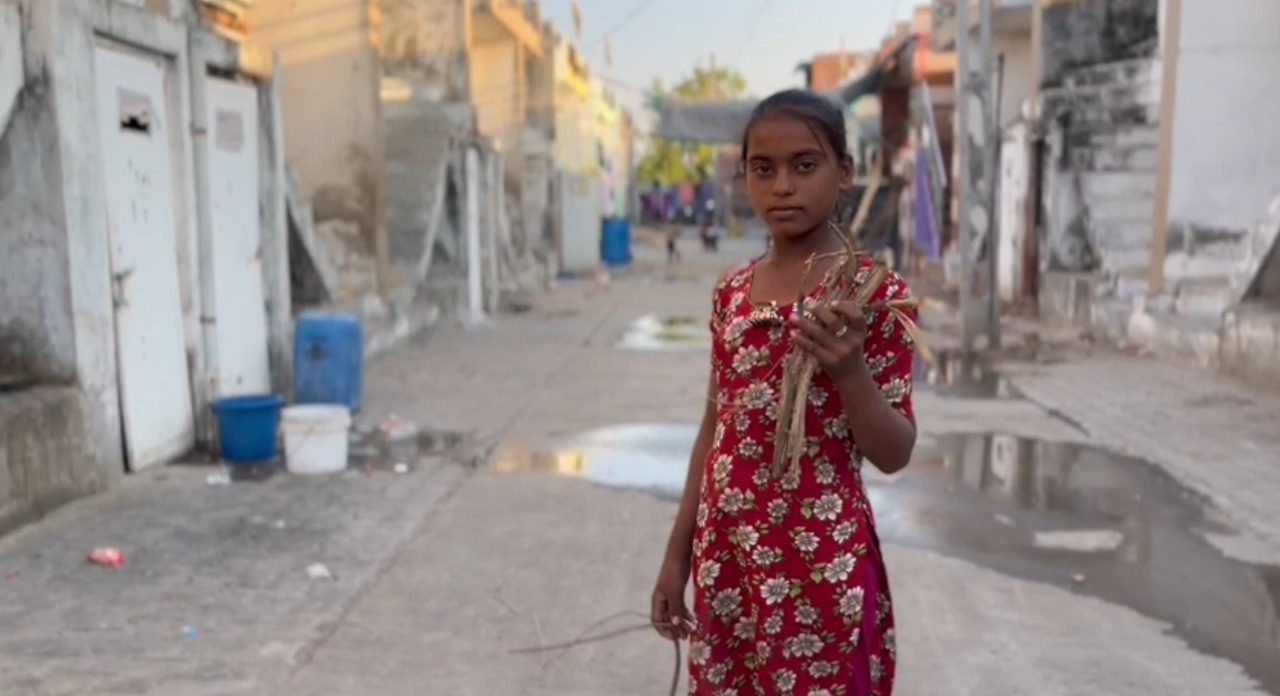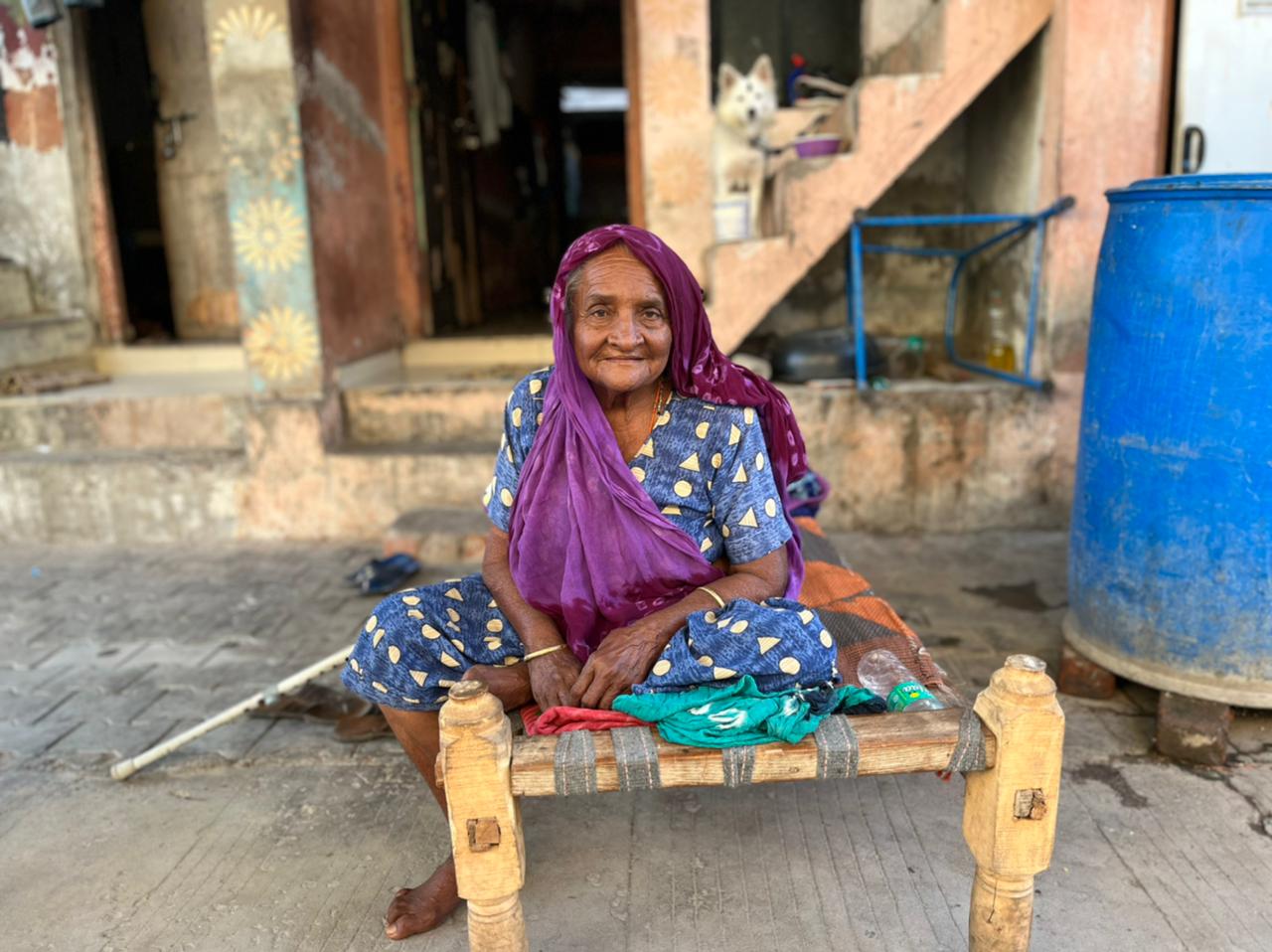In Lakhvad locality in Gujarat’s Mehsana, more than 300 Hindus of Pakistan-origin are all praise for Prime Minister Narendra Modi as they see him as the only politician who can ensure them Indian citizenship.
Navigating through the bylanes of Lakhvad, a mix of shanties and concrete buildings, a team of The New Indian meets 65-year-old Rupa Ben Thakur who moved to Gujarat a few years back even as three of her children still live in Pakistan.
“I thank Modi Ji who allowed Hindus from Pakistan to come to India and live a peaceful and respectful life. May he live long,” says Rupa Ben as her eyes well up.
A native of Amarkot in Pakistan’s Sindh province, Rupa Ben breaks down as she recalls the atrocities committed on her family back in what was once her home.
“Muslims in Pakistan would forcibly take away our daughters, convert them to Islam and then marry them. The abductors would not even allow parents of our daughters to meet them,” she recalls.

Fear runs deep in this community. Their trauma is such that many people still do not want to send their daughters to schools as they fear their abduction.
Mehsana, the native district of PM Modi, is now home to around 323 people from 50 families on long-term visas (LTV). Out of the total population, those living in India for more than 7 years on LTV can apply for citizenship of India, according to the rules.
As they hail the BJP and PM Modi, Pakistan-origin Hindus in Mehsana demand early implementation of the Citizenship Amendment Act that grants citizenship to non-Muslims who fled religious persecution in Pakistan, Afghanistan, and Bangladesh.
Passed by the Indian parliament in 2019, rules for the citizenship act are yet to be framed and without rules, the act cannot be implemented.
A man, in his 30s, says, “We came to India to live respectful life and freely practice our religion, to avoid situations of forcible conversions and save our daughters and wives.”

“We request Modi Ji and the government to expedite the implementation of the CAA. It will benefit thousands of people like us,” he demands.
Last month, the Central government got another three months, the seventh extension in a row, to frame the rules of the CAA which faced huge protests across the country in 2019.
Prem Kumar, a 7th standard boy, praises home minister Amit Shah for standing for the people of the Hindu community living in fear in neighbouring Islamic countries.
“I request PM Modi and home minister Amit Shah to grant us citizenship so that we can live a normal life like any other ordinary Indian,” says Prem who came to Lakhvad two months back.
As Mehsana goes to voting on December 5, the most common demand among locals in Lakhvad is early framing of rules of the CAA.
Kanhaiya Lal, who has helped 100 Pakistani Hindus to settle in Mehsana, says the CAA implementation will ensure a normal life for the refugees.
Ahead of the announcement of the Assembly polls in Gujarat, the Union home ministry allowed the district collectors of Mehsana and Anand to grant citizenship certificates to members of Hindu, Sikh, Parsi, Christian, Buddhist and Jain communities from Pakistan, Afghanistan and Bangladesh under the Citizenship Act, 1955.









